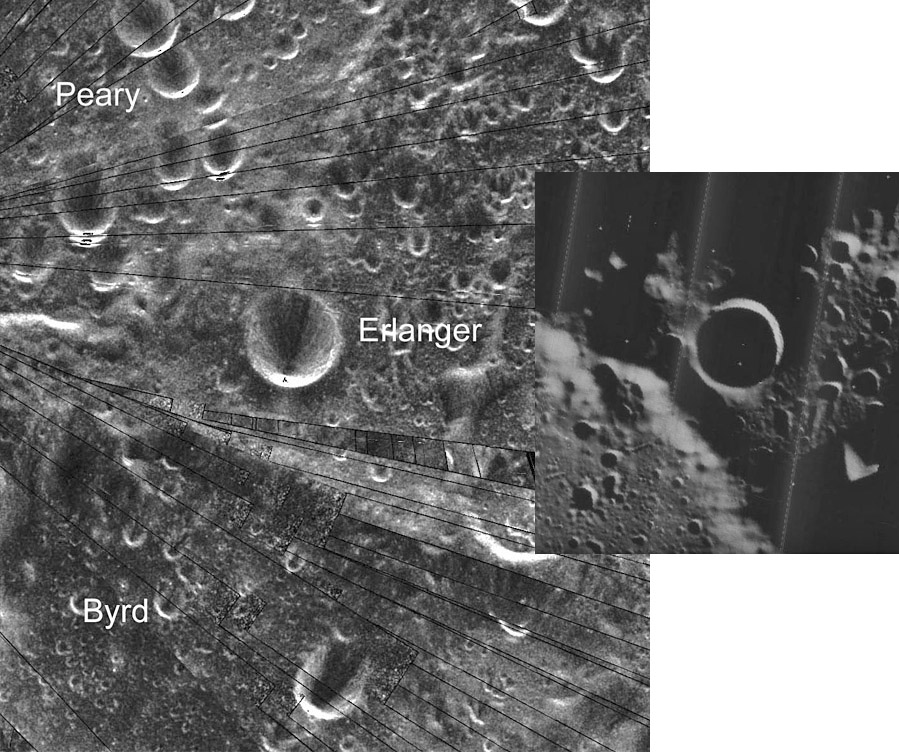November 5, 2018
Is There Ice Here?
Originally published August 22, 2009

Chandrayaan-1 Mini-SAR radar image from ISRO/NASA/JHUAPL/LPI, and smaller LO IV-190 from The Moon WIki
On August 20, two spacecraft, NASA's LRO and India's Chandrayaan-1 conducted a joint experiment to search for ice in this north polar crater, Erlanger. Both spacecraft worked successfully - but did they detect ice? - we have to wait a few days while the data are processed. What was the experiment? Both orbiters have a mini-radar that pulses energy toward the Moon and measures the characteristics of the reflected wave. Much energy reflects off the surface and is used to construct images like the one shone here. But some of the pulse passes into the Moon and bounces around a few tens of meters before leaking out to the surface and back to the spacecraft. These absorbed and re-emitted rays contain information about the nature of the material under the surface. By having the Indian satellite transmit the pulses and both satellites receive them the difference in reception, due to slightly different angles to each, helps confirm the interpretation of ice if it is there, or reduces the uncertainty if it is not. Perhaps the next time you see these images we will know the answer. The second image is a 40+ year old Lunar Orbiter frame that shows Erlanger as a typical small (10 km diameter) polar crater - enveloped in shadow and coldness that perhaps preserves impact-delivered comet ice.
Chuck Wood
Technical Details
Explanation of the experiment.
Related Links
Rükl plate 4
Yesterday's LPOD: Modes of Devastation
Tomorrow's LPOD: LFC-1
COMMENTS?
Register, Log in, and join in the comments.



